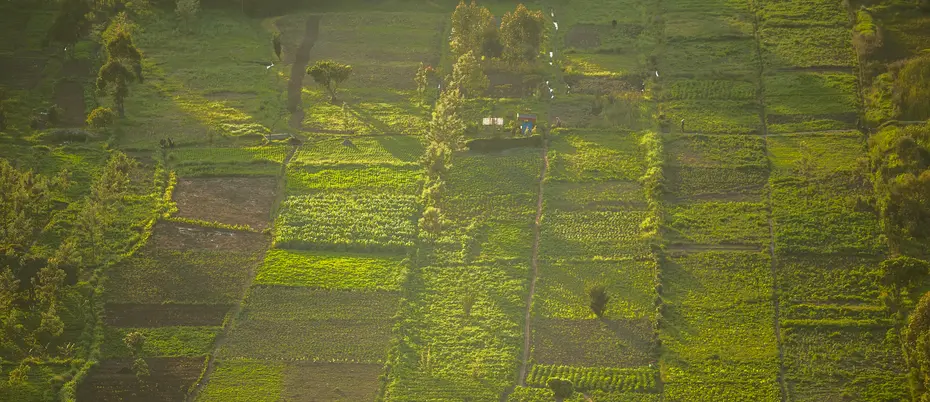Idea for small farms app wins 2019 Enterprise Management Lab hackathon
As supermarkets take hold around the world, small farmers risk getting cut out of the supply chain. A proposed digital marketplace could keep them in the game.
The winning idea at this year’s MIT Sloan Enterprise Management Lab hackathon uses an app and text messaging to connects small farmers in Kenya to supermarkets.
The proposed digital marketplace, SokoShare, would act as an agent between farmers who may have as little has five acres of land, and large supermarkets who don’t have those small farmers on their radar.
“The product that we settled on knowing that we had to make a profit, was creating this digital marketplace where we would be the intermediary and take orders from a supermarket and then parse that out — via SMS, a technology which all the farmers have — to different smallholder farmers,” said Jack Behrens, MBA ’20. “Saying ‘ok, you can give us 40 bags of maize this Sunday and meet us here.’ Separating that out digitally and using AI to start picking up on who can supply what and when and what quality, and providing aggregation of the orders and also providing some sort of quality control to meet the supermarket’s needs.”
The first day of the 2019 hackathon, held March 18-21, included talks with representatives from the Food and Agriculture Organization of the United Nations, Bumble Bee Foods, and Naturipe Farms. The students were broken up into teams — the organizers attempt to evenly distribute different backgrounds and experiences — and had two days to come up with and present on their business solution. A panel of judges chose the winning team.
Behrens said the students learned from the stakeholders that supermarkets around the world are providing more produce than traditional markets. This leaves out small farmers because they don’t have the ability to supply grocery chains with products the way a large farm or wholesaler can.
“We saw that transition starting to happen in Kenya, and the core problem we wanted to solve was how can we help the small farmers capitalize on that because supermarkets pay more for products and that’s generating a lot of growth of the economy,” Behrens said.
SokoShare could take an order for 100 bags of maize — submitted by a grocery store through the proposed company’s app — and divvy that large order into more manageable sizes for small farmers, like 20 bags here or 10 bags there, using a simple text message to farmers with order and delivery information.
SokoShare member Winston Esposito, MBA ’20, said his team also kept in mind what would be a realistic technical solution for the small farmers it was trying to help.
“When you have to solve a problem in the agricultural value chain using technology, people think of sensors or advanced technology, but when you’re dealing with developing economies, you’re not going to get adoption with people who are making a dollar a day,” Esposito said.
The SokoShare team considered other food sustainability issues like soil sustainability, food waste, and tracking food from farm to table. The team also drew on the experience of 2020 MBA candidate Mary Kiarie’s mother, who was a small farmer in Kenya. The group chose the name SokoShare because “soko” means “market” in Swahili, the national language of Kenya.
Kiarie said the hope would be that if SokoShare ever becomes a reality, the company could leverage data on things like weather patterns and who is supplying what crop for more accurate order fulfillment, and also use mobile payments to get money quickly to farmers. That’s important because farmers often need those payments to buy seeds for their next crop.
This is the seventh year of the hackathon, and the student competition is part of the Enterprise Management Lab at MIT Sloan. According to MIT Sloan professor and lab instructor Sharmila Chatterjee, the goal of the hackathon is for students to learn how to adopt a “holistic, cross-functional approach” to solving a business challenge — a useful tool for students when they enter the corporate real world.
This year’s business challenge was food sustainability. Past hackathons focused on opioid use, smart cities, and blockchain. The hackathon is a collaborative effort with MIT Sloan’s enterprise management track team, and leaders from SAP’s business and innovation team.




